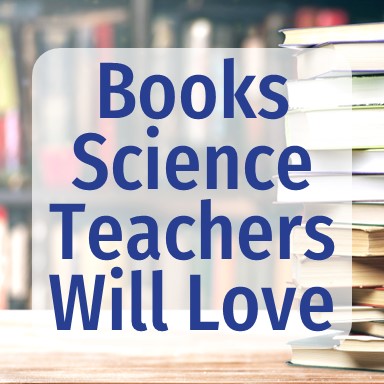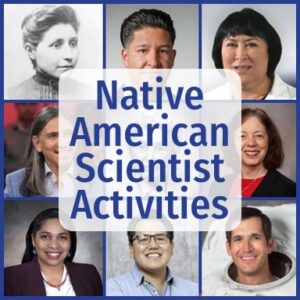
Summer Reading List for Science Teachers
As a busy teacher, mom, and peacock breeder (weird, I know…), I don’t get much time to read. I have learned to be quite purposeful with the books I choose, reading lots of reviews and being sure beforehand that they are worth my time. By nature, I’m drawn to science-related books. I don’t mean dry, fact-laden science books but rather books that are based in science but are fun, on the lighter side, informative about subjects I care about, or can legitimately make me a better science teacher. I’ve compiled my best book list for science teachers – science book recommendations that I’ve enjoyed and you may, too.
For each, I give my synopsis and review of the book to help you choose your next read.
The Radium Girls by Kate Moore
Science Topic: Physical Science/Elements
The Radium Girls were a group of women who worked in factories to paint radium onto watch dials, making them glow in the dark. While the factory owners avoided contact with the radium paint, they told the women that it was harmless. Unfortunately, in painting the watches, the women were exposed to deadly amounts of radium. Some even painted their fingernails, face, and teeth with the glowing substance to be fancy on dates. However, the radium exposure had devastating consequences, and the corporations involved did nothing to support their workers. Although it is nonfiction, The Radium Girls reads like a thrilling story – highly recommend!
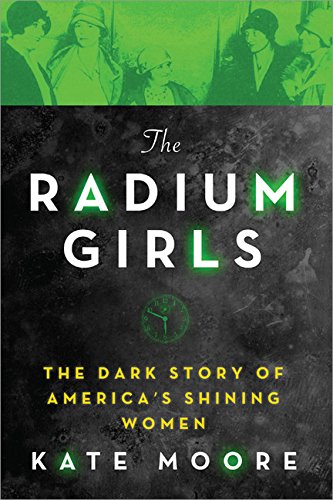
The Immortal Life of Henrietta Lacks by Rebecca Skloot
Science Topic: Medicine/Ethics
This is one of those books that, once you read it, it’s a part of you. I read The Immortal Life of Henrietta Lacks years ago, yet I still think back to it all the time.
Like The Radium Girls, it’s a nonfiction written more like a great novel. It’s the story of Henrietta Lacks, a young mother who died without knowing that her name and cells would forever change medical science. At a young age, she developed cervical cancer. While being treated, a doctor took a sample of her tumor without her consent. Her cancer cells were remarkable – they were immortal. So, her line of cells was used to develop “HeLa” (Henrietta Lacks) cells, used by scientists for many medical breakthroughs, including studying the effects of different drugs on cancer cells, testing the effects of radiation, studying the human genome, and developing new vaccines. This cell line – that she did not consent to give – raises concerns about patients’ rights and the commercial use of cells to this day.
I promise, if you read just one book from this list – The Immortal Life of Henrietta Lacks is the one to get! No book list for science teachers would be complete without it!
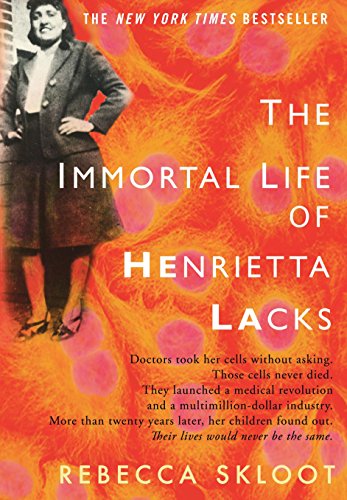
The Code Breaker by Walter Issacson
Science Topic: Biology/DNA
The Code Breaker is the tale of Jennifer Doudna, one of the developers of CRISPR. CRISPR is the technology that can edit genes and therefore will likely change… well… everything.
The process of CRISPR is beautifully simple. It finds a specific segment of DNA inside a cell. The CRISPR gene editing system then alters that piece of DNA. This process can transform the lives of patients with serious genetic disorders, but could also lead to “designer babies” and other impactful moral conundrums. The Code Breaker is on the dense side (for this reader, anyway) but was (especially towards the end) packed with information about the future of gene editing. I took away many concrete examples that I can use with my students when I teach DNA. Now, I can discuss the historical contributions of Rosalind Franklin (find her biography I wrote for kids HERE), James Watson, and Francis Crick, as well as the modern work of Jennifer Doudna.
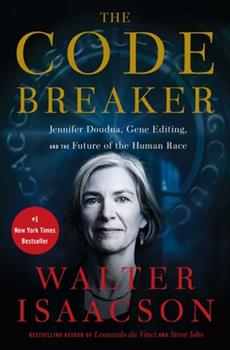
The Story of Life by Sean Carroll
Science Topic: Biology
The Story of Life is a really fun read because it’s a series of short-ish and engaging stories about how different discoveries in biology came about. Some of the stories are classics (but I learned even more about the back stories) while some are more contemporary. The way the stories are written makes it easy to remember the facts and retell the stories to students. I love giving interesting context to whatever science topic I’m teaching by bringing in the “real world” connections. The book The Story of Life was fun for me (especially as a biology major) but also useful to enhance any life science lesson with a cool backstory!
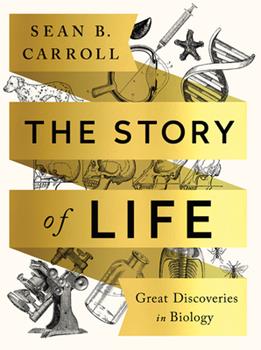
The Story of the Earth in 25 Rocks by Donald R. Prothero
Science Topic: Earth Science
Full disclosure… I don’t love Earth science. So, I didn’t read The Story of the Earth in 25 Rocks because I was super interested in it or excited about it. I read it because I teach some aspects of Earth science (rock cycle, plate tectonics) and I wanted to have a better context and more interesting anecdotes to share with students. I love adding a little back story to my lessons, but because I’m not really an Earth science kind of girl, I didn’t really have any.
This book was SO pleasantly surprising! Even though my interest level in the subject is not the highest, it held my attention and kept me turning pages. It’s not all about rocks, either – it’s really about Earth science as a whole and the history of Earth. What I liked the most is that it talks a lot about the scientists involved. The Story of the Earth in 25 Rocks was the perfect read to help me add some engaging side notes to my Earth science lessons. It made my book list for science teachers because It turned this decidedly not Earth science girl into a kinda Earth science girl!
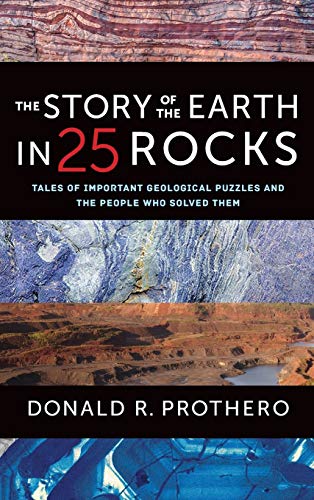
in 25 Rocks
The Disappearing Spoon by Sam Kean
Science Topic: Physical Science/Periodic Table
The Disappearing Spoon is a truly fun read! The author spins tales that follow the discovery of elements on the periodic table and all the weird, wild, and wacky stories that accompany them, often about the crazy scientists who discovered them. The stories are highly entertaining and I learned many random but super cool facts about elements. (Did you know that beryllium is sweet?!) Like The Story of Life, The Disappearing Spoon served two purposes – it highly entertained me and gave me lots of fun tidbits to share with students. Great, great read – an enjoyable “must have” on a book list for science teachers!
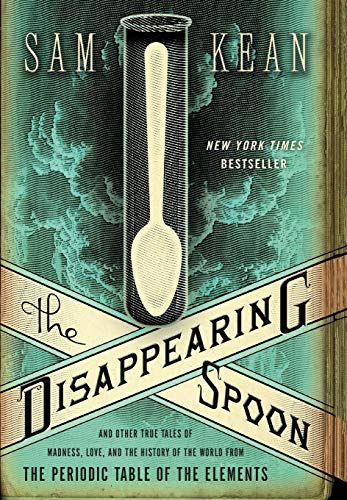
Sacred Cow by Diana Rodgers and Robb Wolf
Science Topic: Human Impact/Environmental Issues
Sacred Cow is not your typical environmental book – it’s a compelling angle that we haven’t heard. With all the talk (rightfully so) about the causes of carbon dioxide rising in the atmosphere, cows are getting demonized. We’ve been told that meat is bad for people and the environment. This book skillfully debunks this, all backed by solid science. (And I’m someone who says, “Show me the science!”) Sacred Cow discusses in detail how a sustainable food system cannot exist without animals and how regenerative cattle ranching is an important tool for mitigating climate change. I realize this seems completely and utterly against what we’ve been told about these issues, but all I can say is… read Sacred Cow and make up your own mind. Sacred Cow makes my book list for science teachers because it’s a fascinating and science-backed viewpoint of current environmental issues.
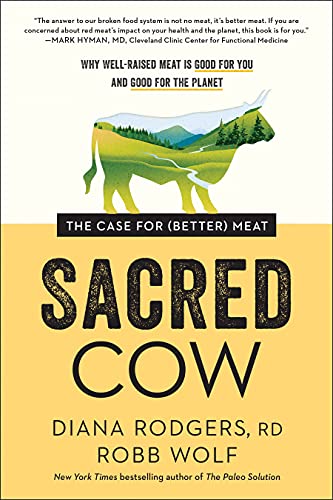
Cows Save the Planet by Judith D. Schwartz
Science Topic: Human Impact/Environmental Issues
I read Cows Save the Planet as a follow-up to Sacred Cow. If you are interested in environmental issues, it’s an information-packed resource. Cows Save the Planet is really more about soil than it is about cows. It outlines (again, backed by science) how soil is a key factor in many overlapping environmental, economic, and social crises today. The health of soil affects climate change, desertification, biodiversity loss, droughts, floods, wildfires, poverty, and malnutrition. While I’m not going to say that Cows Save the Planet was the most entertaining read, it did feel like a “must” read for anyone who has their finger on the pulse of environmental issues. I learned so much about soil’s role in environmental health and gained a much better contextual knowledge of Earth’s balanced systems.

30 Animals that Made Us Smarter by Patrick Aryee
Science Topic: Biology and Engineering
30 Animals that Made Us Smarter is downright fascinating! Did you know that mosquitoes’ mouthparts are helping to develop pain-free surgical needles? Or that woodpecker skulls inspired stronger bike helmets? Or that the cow’s digestive system inspired a filtration system for safe drinking water?
Packed with cool animal facts, 30 Animals that Made Us Smarter is an easy and light read about how studying animal adaptations can help solve engineering and other problems. Each story is easily relatable to students as you teach adaptations OR engineering. I find myself referring to stories in this book all the time in my classroom! 30 Animals that Made Us Smarter makes my book list for science teachers because it hits several aspects of science, is highly relatable in the classroom, and is just plain cool. (Bonus: If you don’t have time to read it, you can always listen to the BBC podcast of the same name that inspired the book. It’s on my “to do” list to listen and find out if the podcast would be appropriate for students.)
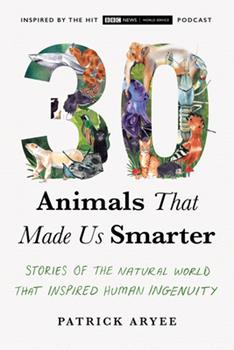
Packing for Mars by Mary Roach
Science Topic: Astronomy
Packing for Mars takes a light-hearted (but still very science-y) look at the science of humans living in space. Yes, there’s practical chapters on things like food, bone density loss, and personal hygiene. However, the true magic of this book is when the author answers the odd and absurd stuff you really want to know… What would sex and reproduction look like living in space? What really happens if you get claustrophobic? Do astronauts stink? Can we bring animals? How does one poop in space? (Full disclosure: this book does talk a tad too much about bodily waste. But that’s a reality in space, right?) Overall, I found Packing for Mars a pleasure to read. Not only was it funny and accessible, but also really informative.
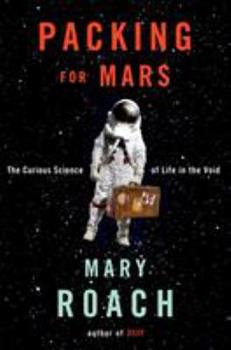
The Poisoner’s Handbook by Deborah Blum
Science Topic: Physical Science/Chemistry and Forensics
Although The Poisoner’s Handbook is nonfiction, it reads like a mystery novel. Any fan of CSI or true crime stories will find this book a blast! It’s set in the early to mid-1900s, before which murder-by-poison was an incredibly easy crime to commit. In comes a New York City doctor and his associate, who develop techniques that seem basic in today’s world of forensic science. From carbon monoxide to chloroform and lots more, we learn about different poisons and some hijinks (to say it nicely) associated with them. The Poisoner’s Handbook is easy to read and the science is explained perfectly yet lightly. My words just can’t describe this book well enough to do it justice! The Poisoner’s Handbook is a truly engaging story, um… I mean nonfiction book!
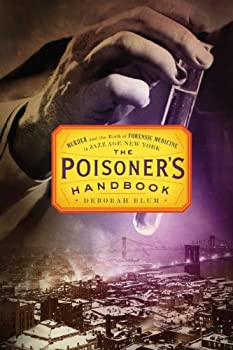
The Science of Good Cooking by America’s Test Kitchen
Science Topic: Chemistry (Kind of!)
I’m that annoying science teacher who brings science into every conversation. When I talk to my kids’ friends, I ask them what they are studying in science right now. When talking with my friends, I’m the one who says “OMG did you SEE that news about the James Webb telescope?!” when everyone else is talking about handbags. For better or worse, I seem to bring science into everything! So when I saw The Science of Good Cooking, I was instantly a buyer.
Now, I am NOT a cook. I haven’t had much luck, so the things that I can cook well, I repeat over and over and over again. (Just ask my kids… they’ll roll their eyes and groan.) I picked up this book figuring that maybe some of my mistakes could be corrected with science. And, it turns out, they were! Lots of cooking best practices were explained using science – my language! For instance, the book explains with science why salty marinades work best, why some proteins are best cooked twice, how starch helps cheese melt better, and why vodka (yes, vodka) makes pie dough easier. If you have a science-tracked brain and like to cook (or don’t like to cook but want to get better at it) The Science of Good Cooking is for you!
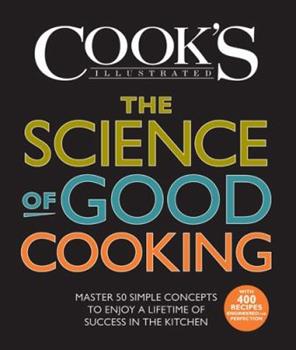
Free Lunch by Rex Ogle
Science Topic: No science but worth a read anyway!
Free Lunch is not a science book. It’s not even a book written for adults. However, it’s a book every teacher should read!
Free Lunch details the experiences of the author, who, as a kid, got free lunch in a wealthy school district. While I’d like to think of myself as a teacher who is sensitive to all kids, aware of home life issues affecting school, and protective of my students, this book was still very eye-opening for me. It didn’t hold back as it described the experiences that so many of our kids endure. Sometimes we get wrapped up in the fact that school is a place for kids to learn when it is so much more than that. Rex Ogle’s story is heart-wrenching and wonderful at the same time. Free Lunch makes my book list for science teachers, but I believe all teachers will take something away from it.
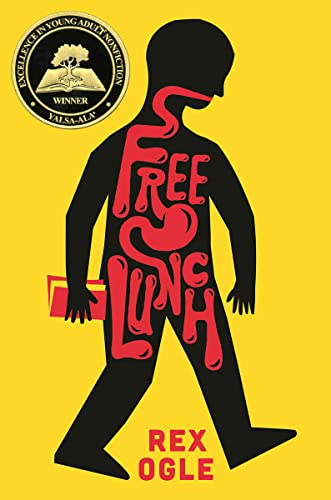
Mindset by Carol S. Dweck
Science Topic: Teaching Science
I know you’ve already heard of this one… this is your nudge to just get it already! I’ve done 23 years’ worth of professional development seminars and courses. I know that I’m preaching to the choir when I say that education PD often has limited value in an actual classroom day-to-day.
But one course stands out from the pack. I took “Growth Mindset in the Classroom” by Advancement Courses and read Mindset. I want to think that, in general, I already had a growth mindset versus a fixed mindset. However, this book opened my eyes in ways that truly changed how I teach, the language I use in the classroom, and the model I try to be for my students. It even changed the way I speak to my own children. Mindset contains “ah-ha” moments, practical tips, and incredible insight into the power of teachers and parents as models of mindset. I highly recommend this read as a teacher and a parent.
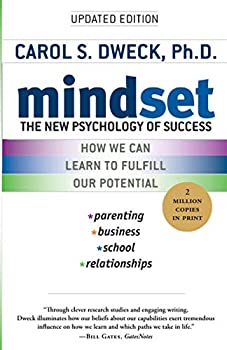
LET’S CONNECT!
If you like these book ideas, please follow me on Instagram where I offer science teacher tricks and tips! And you can follow me on Teachers Pay Teachers, too!
As an Amazon Associate I earn from qualifying purchases.
Share it:
- Read more about: The Science Classroom

